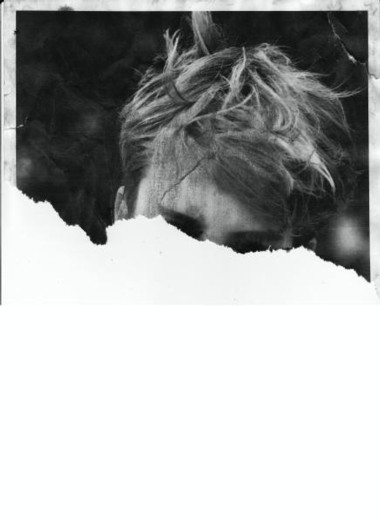In Jeff Jackson’s debut novel, Mira Corpora (“strange and unusual bodies”), questions of truth, fiction, and reality are unavoidable for two reasons. First, Jackson’s narrator is named Jeff Jackson. Second, Jackson says the novel came out of journals he kept when he was a kid. Still, once you’re immersed in the world of the book, those questions fade from importance. Mira Corpora tells the strange, sometimes traumatic story of a runaway boy from age 6 to 18.
If the author’s name sounds familiar, it may be because he’s been a music reviewer for the Advocate for more than a decade. Jackson, who lives in Charlotte, N.C., is a busy writer and teacher—he teaches film at U.N.C. Charlotte, does copywriting for a New York advertising firm, serves as an editor for psychoanalysis journals, and is arts editor for a site called Charlotte Viewpoint. He’s also penned five plays for a New York troupe called Collapsible Giraffe. Mira Corpora was the work of five years, accomplished while wearing those multiple hats.
The book, published by the small press Two Dollar Radio, has hardly gone unnoticed. It made several “best of 2013” lists and boasts blurbs from writers Dennis Cooper and Don DeLillo. In a recent interview, Jackson explained that DeLillo, a writer whose work he particularly admires, got involved when Jackson sent his book to his former literature professor, who, it turned out, was friends with DeLillo.
“I got a postcard from DeLillo with basically what’s written on the back of the book,” Jackson says. He was so overwhelmed with its unexpected arrival that, he says, “I had to walk around the block a few times.”
DeLillo’s praise is not measured. It says in part: “I hope the book find the serious readers who are out there waiting for this kind of fiction to hit them in the face.”
In a sense, the book does require “serious readers.” It’s got ready appeal, but not of a mainstream flavor. This is plainspoken yet lyrical prose, captivating, often beautiful, even when it’s about brutal events. The plot moves deftly, and seems equal parts fever dream and bald reality. Events mostly seem plausible, yet they are often tinged with an air of the surreal, thanks in part to Jackson’s eye for images that defy easy emotion: “I sit alone in the dining room and wait for her curtains to part. It’s late afternoon. Slivers of sunlight filter into the room and gild the bookshelves surrounding the table. One beam falls on the bone china plate that holds the two oranges. I stole them from the girl’s house.”
That kind of straight-ahead prose allows Jackson to slip in some startling images in subtle fashion, and it’s in keeping with the kind of writing he prefers. “I like stuff that doesn’t have too much of an overt literary style, but has an intensity, some poetry and lyricism in it,” he says.
About the unavoidable issues of truth versus fiction in Mira Corpora, Jackson says, “Early on [after publication] there were a lot of questions. I did give the narrator my name. I did call it a novel, because that’s what it is. The decision to give the narrator my name came fairly late in the process. I got to the point I realized I knew the character so well he’d earned the right to my name.
“I’m a little reticent to answer too much. One of the things that gives the book its charge is that tension. It’s wired for that, and I don’t necessarily want to unwire it.”
That tension makes sense when he talks about his old journals. Their contents were a mixed bag: “There were some things that had happened to me, there were legends, there were things that had happened to friends, daydreams, things like that. Finding this old material was sort of the jumping-off point for it, finding a way to give it a form and give it a voice.”
Among the writers who’ve influenced him, Jackson names, among others, Denis Johnson, Don DeLillo, Bruno Schulz and Joan Didion. He adds, “Nabokov is my favorite writer, but I don’t try to write prose like him because I don’t think anybody can. It just goes so deep and it’s so virtuosic.”
Jackson’s experience as a playwright, he says, aided his novel effort, but “not in a super-direct way. It helped in terms of the process. I’ve learned not to get freaked out, to trust that you’ll eventually get there. I’ve been through these long processes and learned to not be afraid to take things apart.”
Jackson’s current efforts include an unusual theater piece he describes as “between play and art installation” that opens in New York City this May. It’s called Dream of the Red Chamber, and it’s made for a sleeping audience. “People can come and go as long as there’s a bed open,” Jackson explains.
Though he doesn’t want to say a lot about his second novel, what he does say points toward his work as a music critic. “It’s sort of looking at the intersection of rock and roll and violence. It’s my attempt to write a rock and roll book and sort of get it out of my system.”•



